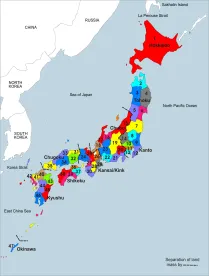On March 15, 2013, Japan announced it will seek to join the Trans-Pacific Partnership (TPP) negotiations, an 11-country free trade agreement (FTA) negotiation involving Australia, Brunei, Canada, Chile, Malaysia, Mexico, New Zealand, Peru, Singapore, the United States and Vietnam, which collectively make up one-third of the global economy.
Japan is the world’s third largest economy and the United States’ fourth largest trading partner. For US companies with export interests, Japan’s participation in the TPP could mean improved access to one of the world’s largest economies for US goods, services and investments including in the following areas:
- Elimination of Japanese tariffs and non-tariff barriers on agriculture products of export interest to US companies
- Opening of Japan’s insurance sector
- Reform of Japan’s non-transparent and costly environmental and safety certification procedures for autos
- Reform of Japan’s entry and approval procedures for medical devices and pharmaceuticals
For import-sensitive US sectors, Japan’s participation in the TPP also could mean increased competition from Japanese products including in certain agriculture sectors and in the US auto and auto parts sector.
The United States expects Japan to put all issues up for negotiation, including its auto, insurance and agriculture sectors, and to live up to the high standards of the TPP talks. Japan has already indicated it will seek to exclude certain sensitive agricultural products (e.g., rice, wheat, barley, beef, pork, dairy and sugar) and its insurance sector.
US companies engaged in goods or services trade with Japan, or with investment interests in Japan, as well as in import-sensitive sectors should be interested in new US trade negotiations with Japan. Companies and industry associations will have several opportunities in the coming months to submit comments to the administration on their priorities and concerns related to Japan’s entry into the negotiations.




 />i
/>i

